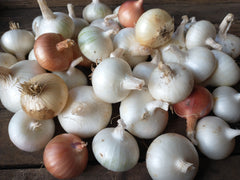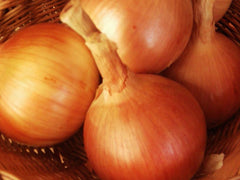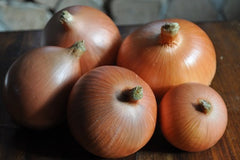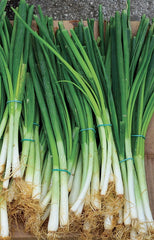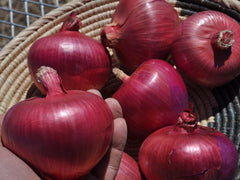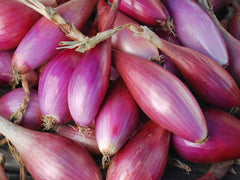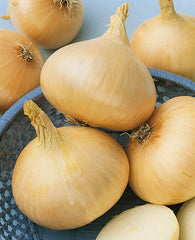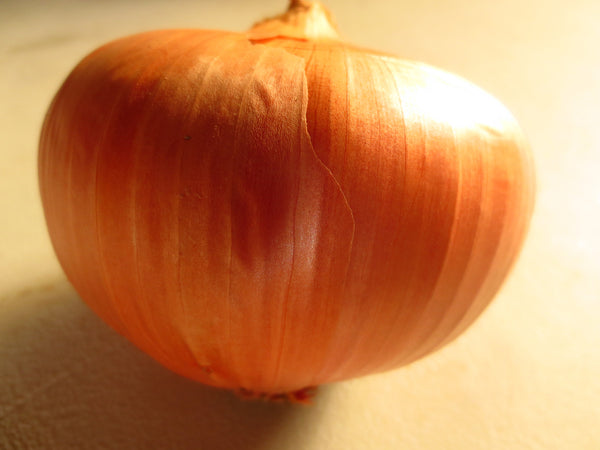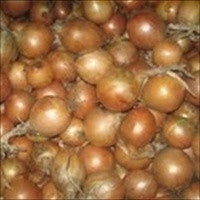New York Early
Allium cepa
HOW TO GROW ONION
Start indoors 8–10 weeks before last frost, plant out 4 weeks before frost. For fall harvest, transplant 11 weeks before first frost. Short-day onions produce bulbs in 11-12 hours of light, long-day onions in 14-16 hours. The dividing line is 36˚, about the KA/OK border. Plant long-day varieties north of this line and short-day south. Direct sow thickly as soon as soil can be worked. If tops reach 5” before transplant, cut to 1-3” to increase girth. Transplant seedlings in shallow trench 2-7” apart. Hill sides slightly after 4-5 weeks. Knock the rest of the tops over when 60 percent have fallen. After 3 days, pull and sun-cure 7–10 days in field rotating every few days before twisting off tops and storing. Soil pH 6.2-7.5. Hardiness zones 3-10. Biennial.
Days from maturity calculated from the date of seeding. Average 6,500 seeds per ounce. Average 580M seeds per acre. Federal germination standard: 70%. Usual seed life: 2–3 years. Isolation distance for seed saving: 1 mile.
Planting Depth 1/8-1/4”
Soil Temp. Germ. 55-75˚F
Days to Germ. 7-14
Plant Spacing 1-2”
Row Spacing 6-8”
Days To Maturity 105-110
Storage Refrigerate
Full Sun, Moist Well Drained
Days from maturity calculated from the date of seeding. Average 6,500 seeds per ounce. Average 580M seeds per acre. Federal germination standard: 70%. Usual seed life: 2–3 years. Isolation distance for seed saving: 1 mile.
Planting Depth 1/8-1/4”
Soil Temp. Germ. 55-75˚F
Days to Germ. 7-14
Plant Spacing 1-2”
Row Spacing 6-8”
Days To Maturity 105-110
Storage Refrigerate
Full Sun, Moist Well Drained
- 100 Seeds$4.10
- 1000 Seeds$18.50
New York Early onion is an improved strain of the Early Yellow Globe; sweet to taste and a long day Northern type onion with a globe shape. Storage onion. Tags: Type: Long-Day, Color: Yellow, Shape: Round, Specialty: Storage, Season: Spring Fall, Certification: Organic.
Reviews
